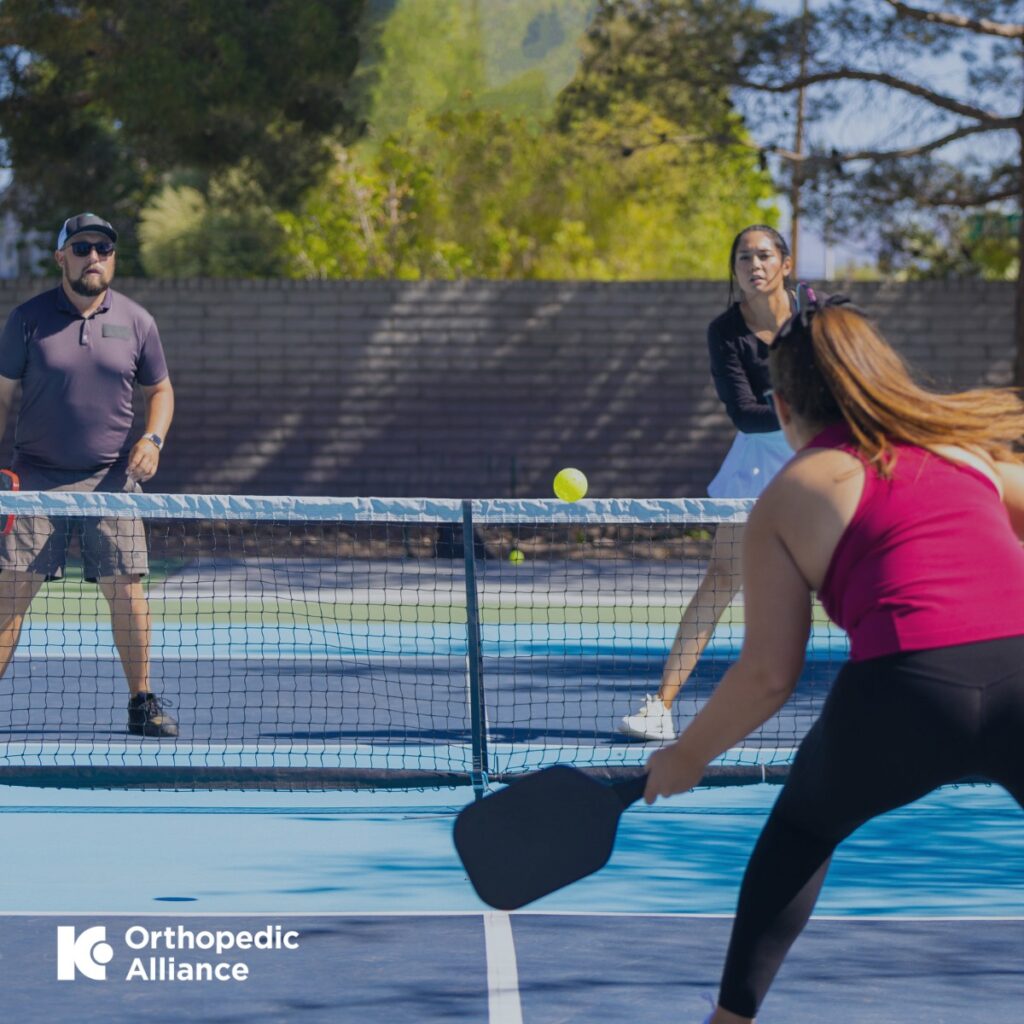 At Dickson-Diveley Orthopaedics, we use regenerative medicine injections as a nonsurgical treatment option for patients with knee pain caused by arthritis. This form of injection therapy, while still in the investigative phases, has been shown to reduce inflammation for longer periods of time and with fewer side effects than some other nonsurgical treatment options for knee arthritis.
At Dickson-Diveley Orthopaedics, we use regenerative medicine injections as a nonsurgical treatment option for patients with knee pain caused by arthritis. This form of injection therapy, while still in the investigative phases, has been shown to reduce inflammation for longer periods of time and with fewer side effects than some other nonsurgical treatment options for knee arthritis.
Below I answer some common patient questions about regenerative medicine injections for knee arthritis:
How do regenerative medicine injections help with knee pain caused by arthritis?
Our normal body system responds to issues such as arthritis by increasing something called inflammatory cytokines within the area. That’s what is telling the body to be inflamed and cause knee pain.
We can isolate, from the blood, the specific markers that can block the inflammatory process within the knee joint, for example. We are gaining all of this in a way that we used to get only from bone marrow aspirate, but we are now able to get that from peripheral blood without the negative side effects of having to obtain bone marrow.
How do regenerative injections compare with other injection therapies for treating knee pain?
The advantage we are seeing with these types of injections, compared with other injections such as cortisone or viscosupplementation, is longer relief in a way that is more biologically sound. We are actually blocking the body’s markers from inflammation.
With a cortisone injection, we are blocking inflammation at the time, but we are not typically doing it for as long. With viscosupplementation, we are providing nourishment to the cartilage in a way that helps strengthen the cartilage and perhaps prevent it from breaking down further. But we’re not blocking the inflammatory cycle or the breakdown process as a whole like we do with the APS (Autologous Protein Solution) injection.
How long does knee pain relief last with regenerative injection therapy?
The hope is that we would need to repeat an injection in 6-12 months. As I mentioned, these injection procedures are still investigative, but current data and observations indicate regenerative injection therapies may provide longer relief than we typically get from steroid injections. However, we are still not able to completely eliminate the need for possible surgery in more advanced cases.
How long does the regenerative injection procedure take?
We are able to do all of this in the clinic in about a 30-minute process. We draw the patient’s blood, typically from a vein in the arm. That blood is then taken to a centrifuge machine and spun down. We isolate the cells we want and then inject them back into the knee joint.
Are there risks or side effects with regenerative injections?
There are very few side effects and risks associated with regenerative medicine injections. There are risks associated with the blood draw and the injection itself, like a local reaction or small risk of infection, but these are very low.
To find out if regenerative medicine treatment options may be right for you, please make an appointment by calling 913-319-7600.
Learn more about regenerative medicine treatment options in the videos below:
Stem Cell Injections for Arthritis, Bursitis and Tendonitis
Treatment for Knee Arthritis: PRP Injections
About the Author
 Scott A. Wingerter, M.D., Ph.D. is a board-certified and fellowship-trained orthopedic surgeon specializing in joint preservation and replacement surgery. His focus is on total joint replacement of the hip and knee, hip resurfacing, partial knee replacement, minimally invasive surgery and hip arthroscopy.
Scott A. Wingerter, M.D., Ph.D. is a board-certified and fellowship-trained orthopedic surgeon specializing in joint preservation and replacement surgery. His focus is on total joint replacement of the hip and knee, hip resurfacing, partial knee replacement, minimally invasive surgery and hip arthroscopy.
***
The medical information contained in the Dickson-Diveley Orthopaedics website is provided to increase your knowledge and understanding of orthopedic conditions. This information should not be interpreted as a recommendation for a specific medical or surgical treatment plan. As each patient may have specific symptoms or associated problems, the treatment regimen for a specific patient may not be the proper treatment for another.
Gaining knowledge and understanding of a particular problem or condition is the first step in any medical treatment plan. We believe the information presented on our website will be helpful for those individuals experiencing orthopedic injuries or other musculoskeletal problems. However, this information is not intended to replace the advice of your family physician. You are encouraged to consult with your physician to discuss any course of treatment presented or suggested.


